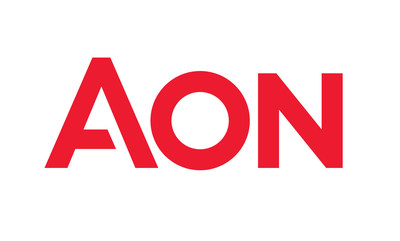CHICAGO, Aug. 18, 2022 /PRNewswire/ -- Average costs for U.S. employers that pay for their employees' health care will increase 6.5 percent to more than $13,800 per employee in 2023, according to Aon (NYSE: AON), a leading global professional services firm.
This projection is more than double the 3 percent increase to health care budgets which employers experienced from 2021 to 2022; but is significantly below the 9.1 inflation figure reported through the Consumer Price Index.
On average, the budgeted health care costs for clients is $13,020 per employee in 2022. The analysis uses the firm's Health Value Initiative database, which captures information for nearly 700 U.S. employers representing approximately 5.6 million employees.
Medical claims were suppressed for most employers during the first year of the COVID-19 pandemic, during which time much care was postponed or skipped during quarantines. Employers have seen the medical claims experience return to more typical levels of growth and anticipate inflationary cost pressures in the coming year.
"In complete contrast over the last decades, we are measuring that health care budgets for U.S. employers will come in nearly three times lower than the Consumer Price Index this calendar year," said Debbie Ashford, the North America chief actuary for health solutions at Aon. "Despite this historic occurrence, employer health costs are expected to increase 6.5 percent in 2023 due to economic inflation pressures."
Price increases driven by economic inflation typically are slow to appear in medical trends due to the multi-year nature of the typical provider contract, but will become apparent over the coming year, Ashford added. Other contributing factors adding pressure on health care trends are new technologies, severity of catastrophic claims, blockbuster drugs and increasing share of specialty drugs.
In terms of 2022 health plans, employer costs increased 3.7 percent, while employee premiums from pay checks were slated to be a more modest 0.6 percent increase from 2021, according to the firm's analysis. Plan costs represent the employer's and employee's combined premiums for medical and prescription drug costs but exclude employee out-of-pocket payments such as deductibles, co-pays and co-insurance. On average, employers subsidize about 81 percent of the plan cost, while employees pay the remainder.
Increase to U.S. Health Care Plan Costs from 2021 to 2022
Plan Cost* | 2021 | 2022 | Change from |
Employer Cost | $10,123 | $10,500 | +3.7 % |
Employee Premiums from Paychecks | $2,504 | $2,520 | +0.6 % |
Total Plan Cost | $12,627 | $13,020 | +3.1 % |
"In what remains a tight labor market, employers are absorbing most of the health care cost increases," Ashford said. "Employers are budgeting higher due to uncertainty and the anticipation that inflationary pressures will increase the cost of health care services."
Slight Increase for Employees in 2022
Employees in 2022 are contributing about $4,412 for health care coverage this year, of which $2,520 is paid in the form of premiums from paychecks and $1,892 is paid through plan design features such as deductibles, co-pays and co-insurance, according to the firm's analysis.
Employee Costs* | 2021 | 2022 | Change from |
Employee premiums from paychecks | $2,504 | $2,520 | +0.6 % |
Employee out-of-pocket costs | $1,798 | $1,892 | +5.2 % |
Total Employee Costs | $4,302 | $4,412 | +2.6 % |
Improving Outcomes and Costs by Addressing Complex Conditions
Faced with the constant, upward pressure from health care trends each year, employers are exploring new solutions to trim their health care costs. One worthwhile approach is to address the high costs associated with patients with chronic and complex health care conditions.
"The effect of chronic conditions has far-reaching implications beyond what we see with health care costs, out to the other areas of the business, like absence and productivity, disability and worker's compensation," said Farheen Dam, Aon's North America health solutions leader. "By focusing on chronic conditions, not only are we improving the health and happiness of employees, but we're helping to improve the way they live and work."
"A key driver of cost growth and budget volatility for employers are new treatments and increased care costs for patients managing long-term complex conditions," Ashford added. "It is not uncommon to see 1 percent of membership driving 40 percent of health care spend in any given year. Aon's commercial analytics capabilities can help plan sponsors identify and predict risks likely to recur and worsen in the future. By integrating our expertise of the effectiveness of solutions in the market with our analytics capabilities, we are helping shape better decisions for employers and their people through more accessible, affordable, evidence-based care."
Aon's Health Value Initiative
The historical information and projections shown above were developed using Aon's Health Value Initiative database, which captures healthcare costs and benefit designs for nearly 700 U.S. employers representing 5.6 million employees and $76 billion in 2022 health care spend. The projections above are developed after taking plan design changes as well as demographic and geographic population adjustments into account. To learn more about Aon's Health Solutions practice, visit https://www.aon.com/home/solutions/health.
* Based on the weighted average cost of clients in Aon's analysis in both 2021 and 2022.
About Aon
Aon plc (NYSE: AON) exists to shape decisions for the better — to protect and enrich the lives of people around the world. Our colleagues provide our clients in over 120 countries with advice and solutions that give them the clarity and confidence to make better decisions to protect and grow their business.
Follow Aon on Twitter and LinkedIn. Stay up-to-date by visiting the Aon Newsroom and sign up for News Alerts here.
Media Contact
Robert Elfinger
+1 312 381 0071
robert.elfinger@aon.com
SOURCE Aon plc

Access international media contacts, the full library of Aon media releases, and a media kit with fact sheet and executive bios, via links below.
